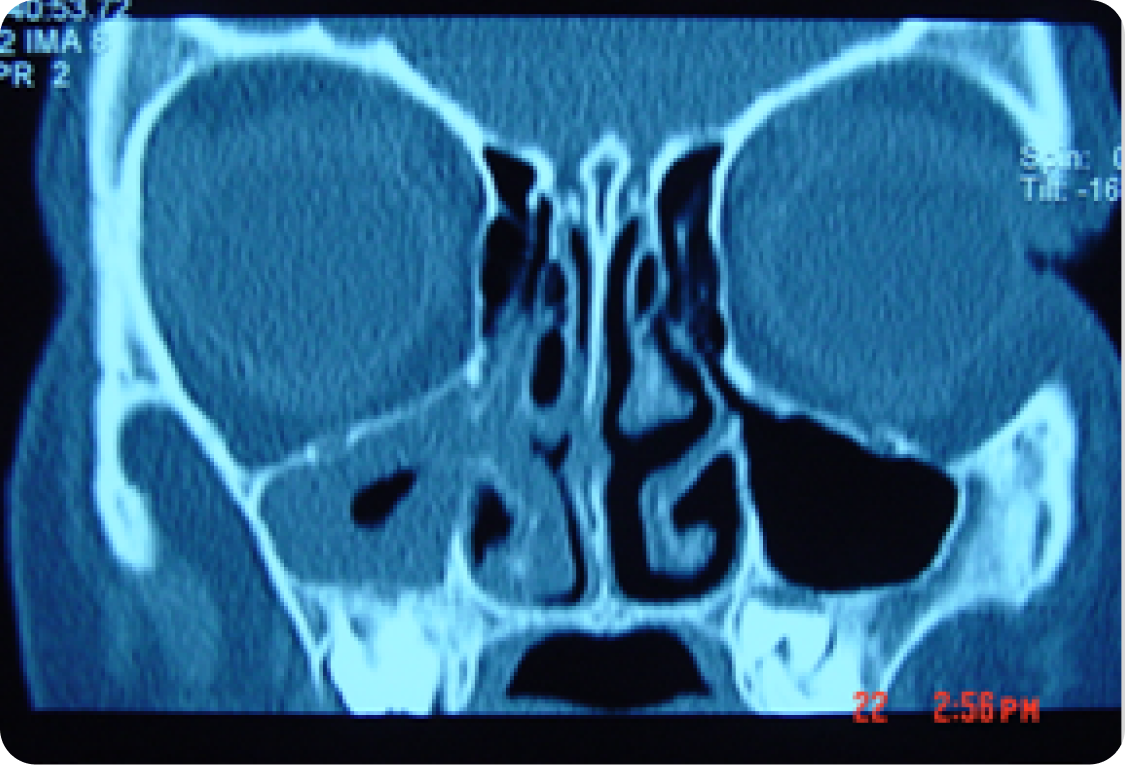Surgery for Sinusitis and Polyps

Surgical treatment for sinusitis and nasal polyps helps relieve persistent nasal obstruction, improve breathing, and reduce sinus infections. This procedure aims to clear blocked sinus passages, ensuring better drainage and long-term relief from discomfort.
Surgery for Sinusitis and Polyps
Nasal obstruction due to polyps, deviated septum, obstructed sinuses on CT scan, frequent sinusitis, headaches, loss of smell, facial ache and pain, post nasal drip, chronic cough are some of the reasons that patient may be referred to be considered for surgery. Medical treatment of infections, allergy and eliminations of factors such as smoking, enviourmental allergens, and dietary modifications will help. Antibiotics, oral steroid therapy, and nasal steroids can also improve sinus conditions.
The main aim in sinus surgery is to open up the sinus passages to allow better drainage as they can be narrow and can often block with simple infections and allergy related swelling of the sinus mucosa. Sinus surgery is technical and requires prior planning and patient preparation. Patient should always have a CT scan on the sinuses to look at the anatomy and the disease. Preoperative antibiotics and steroids will reduce swelling and reduce bleeding during surgery. If there are polyps there will be more bleeding and will make the visualisation of structures difficult in this narrow area.
Surgery is performed with an endoscope and powered instruments with surgeon using the CT scan as a road map to find directions from one sinus to the other. The disease such as polyps and pus can be very close to the brain and the eye making this surgery one of the most challenging operations. The risk of any injury to eye or brain is less than 1 in 10000. Surgery takes approximately 90 minutes. Some patients will stay overnight and you can expect to have some minor bleeding in the first 48 hours. The nose is not packed with gauze unless there is excessive bleeding. Most patient return to work in 5-6 days.

Nasal Polyps

CT scan of sinuses
Murali Mahadevan
Specialist ENT Surgeon
For all enquiries and appointments call (09) 925 4050
Suite A, Level 1, Kakariki Hospital
9 Marewa Road
Greenlane, Auckland 1051
Facsimile: (09) 925 4051
Only general information is provided on this web site and is not intended as advice or a consultation. Please read our full disclaimer.

If you're experiencing these symptoms, it's recommended to consult a healthcare professional for proper diagnosis and treatment.
FAQs
Surgery is recommended for individuals with chronic sinusitis, nasal polyps, persistent nasal congestion, frequent sinus infections, facial pain, or loss of smell that do not improve with medication.
The procedure is typically done using an endoscope, a thin tube with a camera, allowing precise removal of blockages, polyps, or inflamed tissue while preserving healthy structures.
While sinus surgery is generally safe, potential risks include minor bleeding, infection, or temporary nasal congestion. Serious complications like injury to the eye or brain are extremely rare (less than 1 in 10,000 cases).
Most patients can return to normal activities within 5-6 days. Some minor nasal bleeding may occur in the first 48 hours, but packing the nose with gauze is usually not necessary.
Surgery helps improve sinus drainage and reduce symptoms, but polyps can sometimes return, requiring ongoing medical management with nasal sprays or allergy treatments.
Post-surgery, you may experience mild discomfort, nasal congestion, and some drainage. Regular follow-ups and nasal rinses help in healing and preventing future complications.
Contact Us
Get in touch to book an appointment or inquire about our ENT services. Our team is here to assist you with expert care and guidance.
Ph: +64 9 925 4050
Fax: +64 9 925 4051
Dr Murali Mahadevan FRACS
Otolaryngology Associates Ltd
Suite A, Level 1, Kakariki Hospital
9 Marewa Road
Greenlane, Auckland 1051

